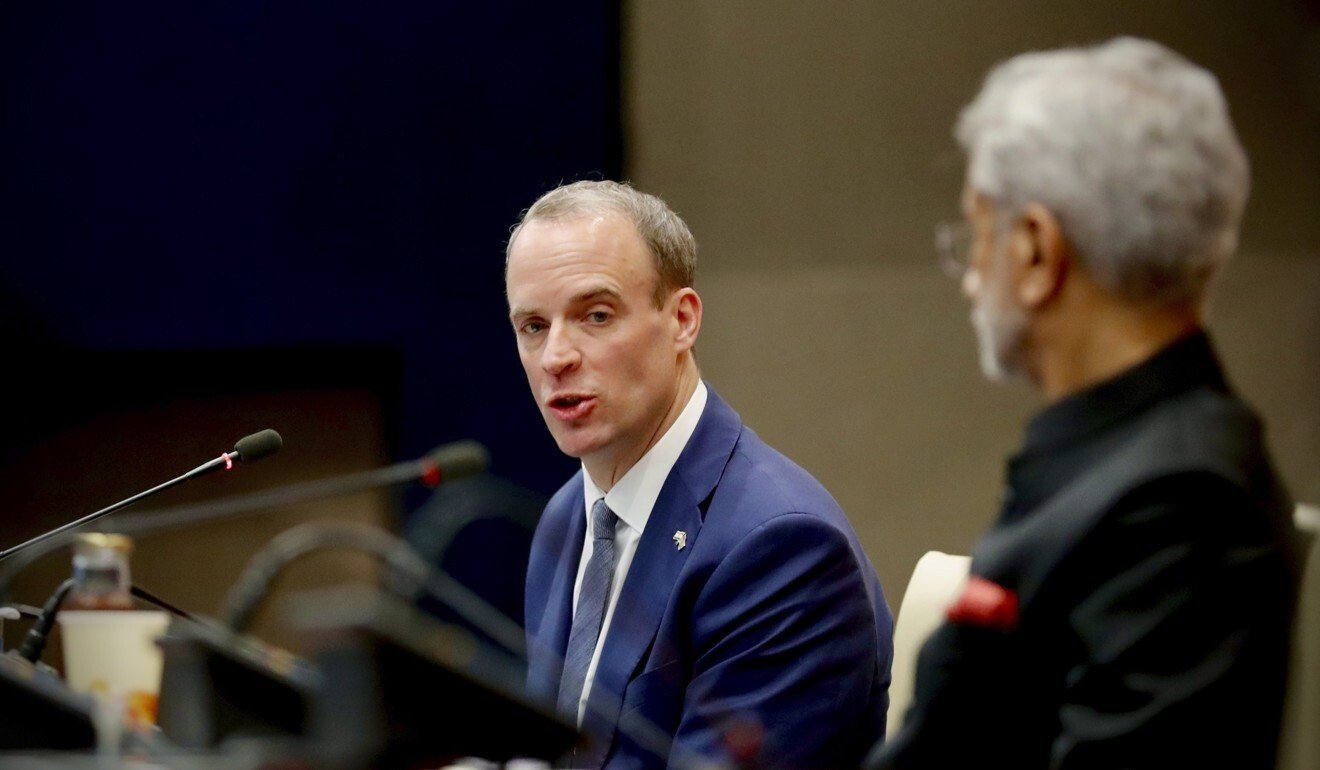
Britain invites India, South Korea and Australia to G7 summit meeting
British Prime Minister Boris Johnson has invited India, South Korea and Australia to the Group of Seven summit meeting next year, as the US and Europe seek to build a wider alliance against China’s growing power.
Johnson’s office announced that he had extended the offer to Indian, South Korean and Australian leaders to take part in the meeting, scheduled next year in Britain, “delivering the prime minister’s ambition to work with a group of like-minded democracies to advance shared interests and tackle common challenges”.
The location and date of the summit, as well as whether it will be held in person or by teleconference because of the pandemic, have yet to be determined.
The invitation came as Johnson announced a visit to New Delhi next month as part of a broader strategy to engage the Indo-Pacific region.
Britain’s relationship with China has slid to its most confrontational levels in a generation, chiefly because of the national security law Beijing has imposed in Hong Kong and London’s decision to ban 5G network services by Huawei Technologies, which it contends is closely linked to the Chinese government.
Increasing concerns over China’s assertive moves in the Indo-Pacific have also resulted in greater diplomatic efforts in the region by the US, Britain and the European Union – with India, Australia and the 10-nation Asean group at the forefront of their focus.
Australia is engaged in escalating trade and geopolitical disputes with China, while India has had military confrontations with China on the Himalayas in the last year, with dozens of casualties.
US President-elect Joe Biden has also emphasised the need to rebuild US alliances after four years of President Donald Trump’s go-it-alone strategy with China.
Trump also invited the same three non-G7 countries to join a meeting this year that was to have been held in June in the US, but the summit was scrapped due to the coronavirus pandemic.
While the three nations have not yet responded to Johnson’s offer, their leaders accepted Trump’s offer last year.

The EU has not yet reached a common position of all 27 member states concerning the Indo-Pacific region, but it has pledged to work with Biden’s incoming administration to deepen ties with the region, and it has recently upgraded its relationship with Asean to a strategic partnership.
In his statement, Johnson said that “as a key player in the Indo-Pacific region, India is an increasingly indispensable partner for the United Kingdom as we work to boost jobs and growth, confront shared threats to our security and protect our planet”.
During his visit, Johnson will be just the second British leader since Indian independence to attend India’s annual Republic Day parade in New Delhi as a guest of honour, after John Major in 1993.
British Foreign Secretary Dominic Raab was in New Delhi on Tuesday, and is expected to meet Indian Prime Minister Narendra Modi on Wednesday.
Raab said that Britain was committed to building a “stronger defence and security partnership” with India, adding that this would “help us respond to the new and emerging challenges like space and cybersecurity”.
“We want to work together to ensure our telecoms networks, our 5G networks, are more secure and resilient,” Raab added.
Modi is also expected to visit Portugal next year and join a summit with all 27 EU heads of government.










